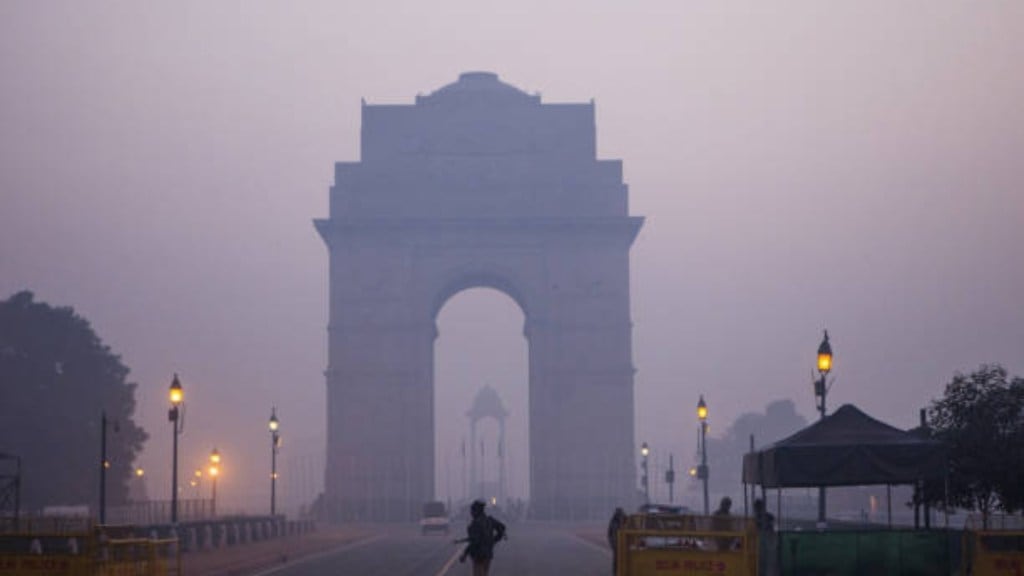A thick layer of smog enveloped Delhi on Friday morning, leaving residents struggling with severely compromised air quality. The Air Quality Index (AQI), monitored by the Central Pollution Control Board (CPCB), revealed alarming levels across several locations in the city. Lodhi Road recorded an AQI of 267, categorised as “poor,” while areas like RK Puram and Chandni Chowk reported AQIs of 374 and 360, respectively, both labelled “very poor.” The situation was most severe in Anand Vihar, with an AQI of 411, placing it in the “severe” category, and Mayur Vihar with an AQI of 366.
NDMC Launches Night Cleaning Drive
In response to the worsening air pollution, the New Delhi Municipal Corporation (NDMC) undertook night cleaning and sweeping operations in multiple locations across the city. Vice Chairman of NDMC and Bharatiya Janata Party (BJP) leader Kuljeet Singh Chahal led the initiative. Speaking during the drive in Khan Market, a prominent area in Delhi, Chahal emphasised the campaign’s goal of achieving a “garbage-free NDMC.”
He stated, “We draw inspiration from our Prime Minister and Home Minister to transform the city into a healthier, more vibrant, and beautiful place.” Chahal highlighted the support of market associations in ensuring cleaner public spaces, adding that the initiative would be expanded to other parts of Delhi.
Stubble Burning in Punjab Aggravates Crisis
Meanwhile, Punjab recorded its highest single-day count of stubble-burning incidents this season, with 1,251 cases reported on Monday. These fires contribute significantly to the region’s air pollution. For instance, stubble burning was observed in Bathinda, further exacerbating the smog enveloping Delhi and the National Capital Region (NCR).
CAQM Issues Strict Directives
The Commission for Air Quality Management (CAQM) reviewed sector-specific measures taken by state governments, including Delhi, Haryana, and Punjab, to combat air pollution. During the 18th meeting of the Sub-Committee on Safeguarding and Enforcement, the commission issued several directives:
- Address mismatches in cases where Environmental Compensation (EC) has been imposed but not followed up with FIRs under Section 223 of the BNS Act, 2023, particularly in Punjab and Haryana.
- Bridge the gap between the cumulative EC imposed and the actual amount realized.
- Revise the inspection protocol for fire incidents to ensure verification within 24 hours, down from 48 hours, especially in Punjab.
As the smog persists, the combination of immediate actions like NDMC’s cleaning drives and long-term solutions addressing stubble burning and industrial emissions remains critical. Experts stress the importance of collaborative efforts between state governments, local bodies, and citizens to alleviate Delhi’s chronic air pollution problem.
(With agency inputs)

